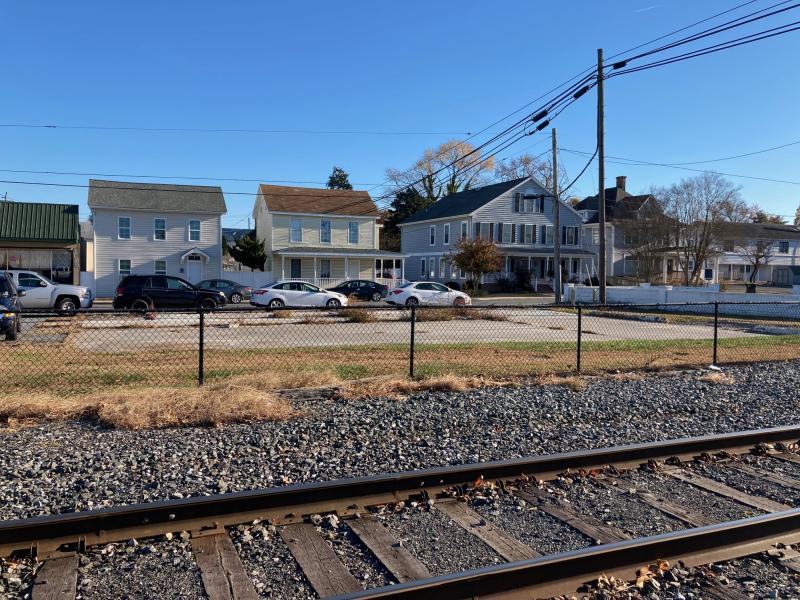EPA proposes Superfund site in Georgetown

The U.S. Environmental Protection Agency is proposing to add the sites of two former Georgetown dry cleaning businesses to the agency’s Superfund national priorities list.
This list includes hazardous waste sites eligible for remedial cleanup action paid for by the federal Superfund program. The site is to be known as the Georgetown North Groundwater site and includes the locations of the former Georgetown Dry Cleaners and Thoro-Kleen Dry Cleaners.
EPA Administrator Michael Regan said in a statement, “No community deserves to have contaminated sites near where they live, work, play and go to school. Nearly two out of three of the sites being proposed or added to the priorities list are in overburdened or underserved communities. EPA is building a better America by taking action to clean up some of the nation’s most contaminated sites, protect communities’ health and return contaminated land to safe and productive reuse for future generations.”
According to the EPA, the Georgetown North Groundwater site is a groundwater plume, or an area of groundwater polluted at a concentration above EPA standards. The area encompasses one square mile in the area of Railroad Avenue in Georgetown. EPA officials say while the public drinking water meets state and federal standards, the groundwater is contaminated with the chemical perchloroethylene, or PCE.
PCE is an organic chemical that was used in dry cleaning and metal degreasing operations. It is a nonflammable liquid that looks like water, but is much denser and can contaminate groundwater. The EPA says exposure to PCE can result in neurological problems, liver damage and increased risk of cancer.
According to the EPA, plumes from the two dry cleaning facilities appear to have co-mingled and contributed to the contamination of municipal groundwater wells in Georgetown. The agency believes there may also be other potential contributors to this plume that have not yet been fully investigated.
“If finalized, today’s proposed listing will enable us to continue our joint work to investigate and remediate the contamination in the Georgetown area,” said EPA Mid-Atlantic Regional Administrator Adam Ortiz. “While the Georgetown Water Department is effectively treating the water supply, additional cleanup of the groundwater will maintain safe drinking water, and protect human health and the environment in this community for many years to come.”
The Thoro-Kleen site has been the scene of a protracted legal battle between Delaware Department of Natural Resources and Environmental Control and the former owners of the site, former state Sen. Joe Booth and his wife Margaret.
The Booths had purchased the site from Joe’s parents in 1986 and ran it as a dry cleaning establishment until 2010. The building has since been removed.
The legal case dates back to 2018, when DNREC Secretary Shawn Garvin sued the Booths for not complying with an order dated Oct. 31, 2017, mandating that they conduct a cleanup of the Thoro-Kleen site.
The Booths argued that they were innocent landowners who were not aware of the presence of PCE at the time they bought the property. In his 2017 order, Garvin disagreed, saying the Booths were aware of the presence of PCE as early as 1985.
In 2010, DNREC said it investigated the site and found PCE and another chemical, trichloroethylene, or TCE, also used in dry cleaning, in the groundwater. In early 2014, DNREC said it sent a notice to the Booths about their liability for the site. Later that year, DNREC determined the PCE and TCE levels in the groundwater at the site exceeded EPA safety levels. The state referred the site to the EPA in 2016.
Following the notice of liability, the Booths worked with a brownfield developer, Ten Bears Environmental, on cleanup of the site to be used as a parking lot for the neighboring Restoration Worship Center. A brownfield site is a parcel that has been found by the EPA to contain environmental contamination. Delaware’s brownfield program provides entities that want to redevelop a site with financial assistance in the form of reimbursements, tax credits or grants.
In a 2019 decision, Delaware Superior Court Judge Jeffrey Clark agreed with DNREC that the Booths were liable for the site cleanup. The last remaining bit of business to be resolved was how much the Booths owe. DNREC, in court filings, originally asked for $303,000, but that amount was revised down to $105,000 based on invoices for work already performed by Ten Bears.
The Booths argued that DNREC could not legally seek remedial costs for the cleanup investigation and work. But Clark disagreed, and held the Booths liable for $105,000 related to cleanup work at the site. The Booths are appealing the ruling to Delaware Supreme Court.
Funding for the Superfund cleanup was provided in President Joe Biden’s Bipartisan Infrastructure Law, which provided $3.5 million to the EPA to clear a backlog of 49 sites that had been awaiting remedial action.
The EPA is holding a 60-day public comment period on the listing of the Georgetown site until Tuesday, May 17. After the formal comment period, if the site still qualifies for cleanup, the agency will give a final ruling and the site will become a Superfund site. EPA would then conduct a more comprehensive investigation to determine the full nature and extent of contamination and examine potential remedies.
More information about the proposal can be found at epa.gov/superfund/georgetowngroundwater. Public comment can be sent online at regulations.gov under EPA-HQ-OLEM-2022-0190 or by mail to U.S. Environmental Protection Agency, EPA Docket Center, Docket # EPA-HQ-OLEM-2022-0190, Mailcode 28221T, 1200 Pennsylvania Ave. NW, Washington, DC 20460.
Ryan Mavity covers Milton and the court system. He is married to Rachel Swick Mavity and has two kids, Alex and Jane. Ryan started with the Cape Gazette all the way back in February 2007, previously covering the City of Rehoboth Beach. A native of Easton, Md. and graduate of Towson University, Ryan enjoys watching the Baltimore Ravens, Washington Capitals and Baltimore Orioles in his spare time.





















































